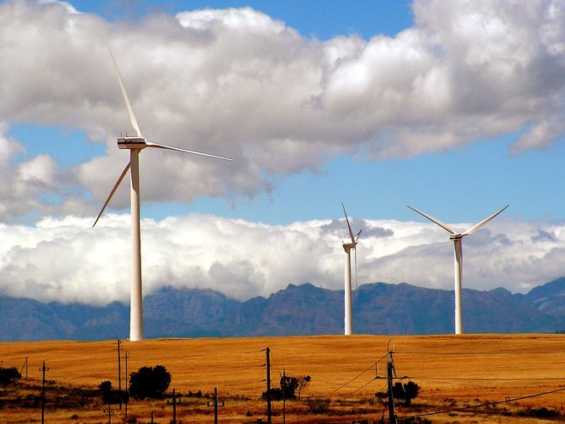
Africa’s energy sector sits on the precipice of many exciting opportunities for expansion and development. There is great purpose and benefit for both individuals and organizations alike in staying abreast of the most recent developments and trends that are shaping the industry’s future.
By now, most people know that African nations are, like many other countries, being expected to develop advanced renewable energy infrastructure at an unprecedented pace. Of course, despite the challenges associated with this, there are indeed many opportunities for both the near-term and the long-term that can benefit African people, countries, and the global community as a whole.
With this in mind, I felt that delivering some useful insights and perspective on the complex and continuously shifting energy sectors of Africa would be of value to my readers. The oil and gas industries in African countries will not be demolished but rather have the opportunity to evolve. This evolution stands to strongly position African nations to experience prosperity in new and exciting ways.
Consider this your primer on Africa’s fast-paced energy market as we gaze down the horizon at the rapidly developing energy economy of tomorrow.
The African Energy Sector Today
Across the entire African continent, businesses and individuals are working tirelessly to keep pace with the rising demand for electricity. The abundant oil and gas repositories beneath African soil continue to satisfy this demand, but the energy industry as a whole is at a crossroads.
An influx of new capital brought on by the discovery of Africa’s massive oil and gas reserves has effectively boosted the continent’s economy en masse. But although this huge surge of capital has created new opportunities, there are also pitfalls that have revealed themselves.
Possibly the most major threat is the immediate need to create and execute sustainable practices, overcome infrastructural and regulatory barriers, and carefully maneuver the geopolitical hazards associated with being a powerful new player in the global energy industry.
Countries like Nigeria, Libya, and Angola currently lead the continent in oil production. But new requirements to be competitive in the near future’s energy trade mean that a rapid evolution is necessary.
Rapid transitions and developments inherently pose greater risk for the breakdown of already-effective systems in place. I believe that African countries will need to rely on a modest balance of traditional practices along with an embrace of modern innovation in order to continue riding the wave of economic growth.
Stepping Carefully Into Opportunities and Overcoming Pitfalls
Like any major move, strategic and well-informed planning will be vital to successfully negotiate the energy sector’s opportunities and pitfalls in Africa. Rushing off in one direction without forethought only guarantees struggle and increases the likelihood of irreversible damage to Africa’s burgeoning economies.
For businesses to thrive in the competitive energy market, they’ll need to be able to analyze the environment and act accordingly. This includes taking a deep dive into the nuance of local economies that are expected to abide by international regulations.
Think of this energy transition like a pre-flight check before takeoff. A plane that goes speeding down the runway without first checking off all vital and core systems is doomed to run into turbulence or even crash altogether.
Organizations that have invested in African energy and anticipate rapid development should first stop and consider the following:
- Personalized pathways to creating sustainable practices in local energy economies
- Strategies for negotiating through regulatory challenges and international objectives
- Management of geopolitical risks and preventing harm to Africa and its people
- The intelligent adoption and use of technology
As an overall guiding principle, I believe that African nations thinking first about the health and livelihood of their people will undoubtedly lead to positive outcomes. Thinking about any one dimension, like regulation or new technology, without considering the ramifications for individual lives is likely to produce negative outcomes.
These are guidestones that can help organizations, nations, and individuals get a leg up on the competition and thrive in this dynamic and competitive industry.
All eyes are on Africa and its Future
With so much focus being placed on the future development of energy in Africa and globally, it’s of tremendous utility to keep our eyes fixed on the trajectory that we’re heading down.
There are many trends and events that will shape the energy sector going forward. I intend to continue providing my own actionable recommendations for nations, companies, and individuals looking to thrive as we all move forward into the future.
My optimism for Africa is that our energy evolution is one that will encompass due diligence in considering its impact on local economies and the people of our continent. I hope that you’ll join me in charting a benevolent course toward greater shared prosperity at the local, national, and global levels.
source:https://www.businessghana.com/
